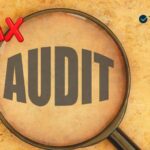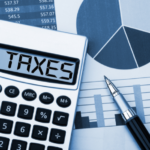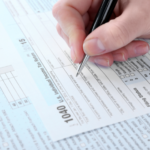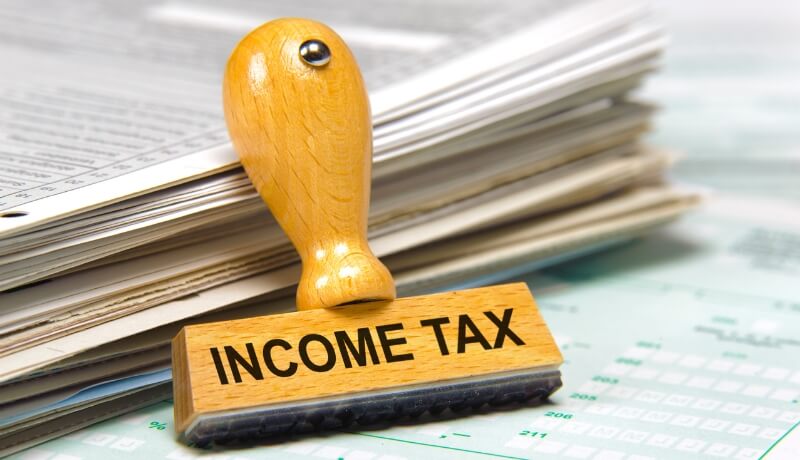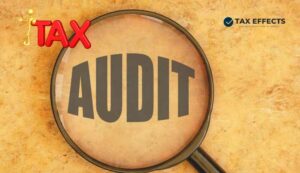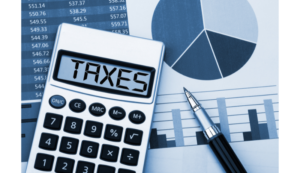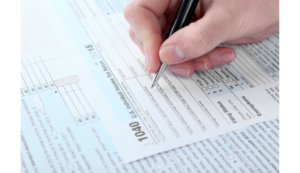In this article we will discuss in detail regarding the DEFAULT New Tax Regime as per Section 115 BAC & Old Tax Regime applicability for the Financial Year 2023-24–
Points to be remembered while taking the option of NEW TAX REGIME for FY 2023-24 (AY 2024-25) are:
(1). NEW TAX REGIME is applicable to all INDIVIDUALS (whether Resident or Non-Resident, Senior Citizen or Super Senior Citizen), HUF/AOP/BOI/Artificial Juridical Person (NOT applicable for Co-operative Society) for FY 2023-24 (AY 2024-25). Basic Exemption Limit of Rs 3,00,000 is applicable to ALL the TAXPAYERS as mentioned irrespective of their AGE or Residential Status.
(2). Income Tax Slab Rates applicable to Individuals/HUF/AOP/BOI/Artificial Juridical Person (NOT applicable for Co-operative Society) for FY 2023-24 (AY 2024-25) in Budget 2023 will be:
| Up to Rs 3,00,000 | Nil |
| Rs 3,00,000 to Rs 6,00,000 | 5% |
| Rs 6,00,001 to Rs 9,00,000 | 10% |
| Rs 9,00,001 to Rs 12,00,000 | 15% |
| Rs 12,00,001 to Rs 15,00,000 | 20% |
| Above Rs 15,00,000 | 30% |
Note – Surcharge (if any) will apply if Total Taxable Income exceeds the specified limit of income + Health & Education Cess @ 4% (always) will apply.
(3). Under NEW TAX REGIME for FY 23-24, ONLY Standard Deduction of Rs 50,000 is allowed to salaried employees & pensioners. Other Deduction & Exemption such as u/s 80C, 80D, 80CCD(1B), 80TTA, 80G, Interest on house property loan u/s 24(b), HRA, LTA etc. will NOT be allowed to taxpayer.
(4.) Apart from above deduction, only 2 deduction is allowed under NEW TAX REGIME namely –
- Section 80CCD(2) – NPS Contribution by Employer &
- Section – 80JJAA – Tax deduction on generating EMPLOYMENT can be claimed by employers from their Business Income
- Certain Conditions need to be fulfilled before claiming deduction u/s 80JJAA).
(5). NEW TAX REGIME will be the DEFAULT tax regime at the time of filing ITR for FY 2023-24 (AY 2024-25). However, taxpayer has the OPTION to CHANGE from NEW TAX REGIME (Default Regime) to OLD TAX REGIME as per their convenience.
(6). Tax Rebate u/s 87A will be allowed on Taxable Income up to Rs 7 lakhs under New Tax Regime for FY 2023-24 (AY 2024-25). Total rebate allowed under this section is Rs 25,000 on taxpayer tax liability BEFORE surcharge & cess.
(7). Also, if taxpayer tax liability exceeds more than their income exceeding Rs 7 Lakhs then MARGINAL RELIEF CONCEPT will be applicable to taxpayers due to hardship of paying taxes exceeding their slabs income if income exceeds Rs 7 lakhs.
Marginal Relief will apply to the Individuals opting for New Tax Regime u/s 115BAC having income marginally exceeds Rs 7 Lakhs. Hence, Individuals with an annual income ranging in between Rs 7,50,0000 – Rs 7,77,778 will get Marginal Relief benefit in case of tax payment.
(9). Family pensioners can also claim standard deduction of Rs 15,000 under New Tax Regime.
g) Maximum Highest Surcharge rate applicable (if any) has been reduced to 25% from 37%.
Points to be remembered while taking the option of OLD TAX REGIME for FY 2023-24 (AY 2024-25) are:
(1). OLD TAX REGIME is applicable to Resident INDIVIDUALS, Senior Citizen (Age 60 years or more) or Super Senior Citizen (Age 80 years or more), HUF for FY 2023-24 (AY 2024-25).
(2). Basic Exemption Limit (BEL) of Rs 2,50,000 is applicable to INDIVIDUAL Taxpayer, Rs 3,00,000 to Resident Senior Citizen, Rs 5,00,000 to Resident Super Senior Citizen. BEL will be allowed against STCG u/s 111A, LTCG u/s 112A & LTCG u/s 112.
(3). For NON-RESIDENT Individuals (whether Normal Citizen, Senior Citizen or Super Senior Citizen), BEL of Rs 2,50,000 is applicable. NO HIGHER BEL will be allowed to NRI. Also, NO BEL will be allowed to NRI against STCG u/s 111A, LTCG u/s 112A & LTCG u/s 112.
(4). Income Tax Slab Rates applicable to Individuals (below 60 years of Age), HUF for FY 2023-24 (AY 2024-25) will be:
| Up to Rs 2,50,000 | Nil |
| Rs 2,50,000 to Rs 5,00,000 | 5% |
| Rs 5,00,001 to Rs 10,00,000 | 20% |
| Rs 10,00,001 to Rs 12,00,000 | 30% |
Note –
a) Surcharge (if any) will apply if Total Taxable Income exceeds the specified limit of income + Health & Education Cess @ 4% (always) will apply.
b) For Resident Senior Citizen – BEL of Rs 3,00,000 & for Resident Super Senior Citizen, BEL of Rs 5,00,000 will apply.
Deductions Allowed Under Old Tax Regime:
Under OLD TAX REGIME for FY 23-24, ALL Deduction & Exemption available to Salaried Individual taxpayers & other taxpayer will be allowed such as deduction:
(1). Under Section 80C (LIC, PPF, EPF, ELSS Mutual Fund, ULIP, 5 Years FD, NSC, SSY, Tuition Fees of any 2 children, Repayment of Housing Loan Principal, Stamp Duty, Registration fees for acquisition of House property, Contribution to NPS account) – Maximum upto Rs 1.5 Lakhs
2) Section 80D: –
a) Premium paid on health insurance & expense incurred towards preventive health check-up can be claimed as a deduction.
b) Individual & HUF can claim deduction. An individual can claim a deduction for health insurance premium & expense incurred towards preventive health check-up for self, spouse, dependent children & parents.
c) Limit of deduction – For a person aged below 60 years, the deduction limit u/s 80D is upto 25,000. The limit of 25,000 includes 5,000 on preventive health check-up. If the age of the insured is above 60 years, the deduction limit increases upto 50,000.
Premium amount to be paid by any mode other than CASH.
(3). Section 80CCD(1B) – It provides additional deduction for contributing to Pension Scheme of CG, National Pension Scheme (NPS), Atal Pension Yojana in respect of any amount paid up to Rs. 50,000, If contribution is made in Tier – 1 of NPS account.
(4). Section 80E – Deduction on INTEREST paid of Education Loan for higher studies. Deduction is available ONLY on INTEREST amount paid on loan for a maximum of 8 Years from the year in which interest repayment begins & NOT on the principal amount of loan payment.
(5). Section 80EEA – Interest on Loan Taken for Certain House Property – Deduction: Interest payable on the loan or Rs 1, 50,000 whichever is LESS.
Conditions:
i) Individual person taken loan for the purpose of acquisition of residential house property
ii) Loan is sanctioned during 01.04.2019 to 31.03.2022
iii) Stamp Duty Value (SDV) of the residential house property does NOT EXCEED Rs 45 lakhs
iv) Does NOT OWN any residential house property on the DATE of SACTION of LOAN
v) ONLY INDIVIDUAL taxpayer can claim deduction u/s 80EEA. Deduction is NOT available to a HUF, AOP, Partnership Firm, Company etc.
(6) Section 80EEB – Interest on Loan Taken for purchase of ELECTRIC CAR – Deduction: Interest payable on the loan or Rs 1, 50,000 whichever is LESS.
Conditions:
i) Interest on loan paid by an INDIVIDUAL to purchase an Electric Car up to Rs 1.5 Lakhs.
ii) Loan must be approved during the period 1st April, 2019 to 31st March, 2023. Deduction is available for 3-wheelers, 4-wheelers & electric 2-wheelers.
iii) Loan must be taken from a financial institution or a NBFC for buying electric vehicle.
iv) ONLY INDIVIDUAL taxpayer can claim deduction u/s 80EEB. Deduction is NOT available to a HUF, AOP, Partnership Firm, Company etc.
(7). Section 80TTA – any individual but NOT senior citizen can claim a deduction of Rs. 10,000 or the interest earned on SAVING BANK account, whichever is lower
(8). Section 80TTB – Any senior citizen can claim a deduction of Rs. 50,000 or the interest earned, whichever is lower. It may be interest on fixed deposits, interest on savings account or any other interest.
Assessee claiming deduction u/s 80TTB are NOT allowed to claim deduction u/s 80TTA.
(9). Section 80G– Donation to certain funds, Charitable Institutions etc.
Donations to certain funds & institutions qualify for 100% or 50% deduction without any qualifying limit. On the other hand, certain donations qualify for 100% or 50% deduction, subject to qualifying limit. NO DEDUCTION is allowed for CASH donation exceeding Rs. 2000.
(10). Section 80GG- Rent paid of House Property (HRA not Received)
Amount of Deduction –
Lower of the following is allowed as deduction –
a) Rs 5,000 per month
b) 25% of Adjusted Gross Total Income
c) Rent Paid – 10% of Adjusted Gross Total Income
Note – Assessee or his spouse or minor child or HUF should not own any house at the place of his duty.
(11). Standard deduction u/s 16 of Rs 50,000 on Salary Income will be allowed.
(12). Interest paid on loan taken for purchase of house property u/s 24(b) in case of self-occupied property will be allowed maximum upto Rs 2,00,000.
(13). House Rent Allowance (HRA) u/s 10(13A) – Every salaried employee who is in receipt of HRA & who resides in a rental accommodation may avail the benefit of exemption under this section provided he/she does NOT OWN any residential accommodation occupied by him.
LEAST of the following is exempt from tax:
– For Metropolitan Cities
a) Actual amount received
b) Rent paid in excess of 10 % of salary
c) 50 % of salary
– For Other Cities
a) Actual amount received
b) Rent paid in excess of 10 % of salary
c) 40 % of salary
(14). Any LTA received, Gratuity received etc. will be ALLOWED to taxpayer claiming such deductions & exemptions & having proof or evidence attached to it.
(15). Tax Rebate u/s 87A will be allowed if Total Taxable Income is up to Rs 5 lakhs under Old Tax Regime for FY 2023-24 (AY 2024-25). Total rebate allowed will be Rs 12,500 or such lower amount on taxpayer tax liability BEFORE surcharge & cess.
Happy Readings!
Disclaimer: The information contained in this website is provided for informational purposes only, and should not be construed as legal/official advice on any matter. All the instructions, references, content, or documents are for educational purposes only and do not constitute legal advice. We do not accept any liabilities whatsoever for any losses caused directly or indirectly by the use/reliance of any information contained in this article or for any conclusion of the information.

